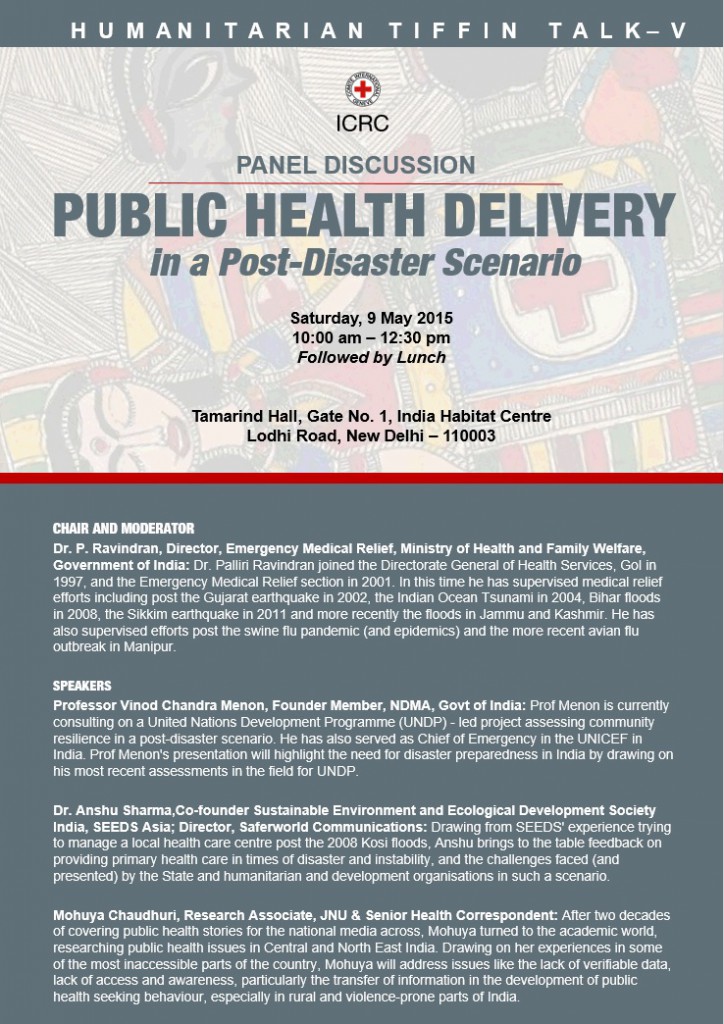The ICRC Regional Delegation for India, Bhutan and the Maldives announces the fifth edition of Humanitarian Tiffin Talk to be held at the India Habitat Centre on 9 May 2015. The topic of discussion will be ‘Public Health Delivery – In a post-disaster scenario’.
The panel discussion will be chaired by Dr. P Ravindran, Director, Emergency Medical Relief, Ministry of Health and Family Welfare, Government of India. The three speakers include Prof Vinod Chandra Menon, who is a founder member, NDMA, Government of India; Dr. Anshu Sharma, who is co-founder of Sustainable Environment and Ecological Development Society India, SEEDS Asia and director, Saferworld Communications; and Mohuya Chaudhuri, research associate, JNU and senior health correspondent.
About the topic: It is a reasonable assumption that public health and a sense of personal and public hygiene are close to nullified in a post-disaster scenario, and carry tremendous impact even months after the event, on an individual’s physical and mental wellbeing (the actual impact is almost impossible to evaluate).
Security experts believe that as more and more atypical political, religious and armed actors emerge, institutional and logistical support for humanitarian aid and public health workers will be harder to come by. Access and coverage aside, even comprehensive data available on the wider impact of damage and disease in the aftermath, which are already seriously neglected will be tougher to gather and analyse.
As part of the ICRC New Delhi’s Humanitarian Tiffin Talk series, this event will discuss the roadblocks that different stakeholders face in trying to correct imbalances created in the public health delivery system in the aftermath of disasters. The focus of the discussions will be towards – identifying the kind of data gaps with respect to public health, possible reasons behind hesitancy and lack of awareness in public health and the kind of systemic failures that foster failures in overall delivery in crisis situations – and make an attempt to come up with solutions to erase said blocks.
ICRC New Delhi


